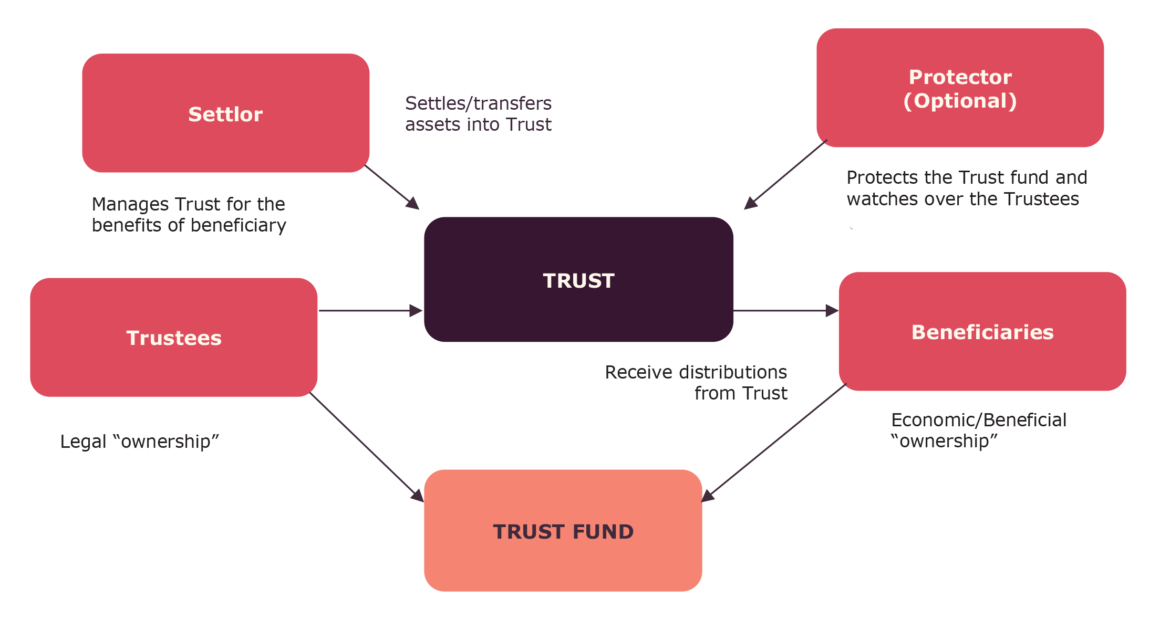A Trust is a useful and practical concept that has been around for centuries. Both the Romans and early Islamic societies developed similar structures, but it is England, its affiliated Crown Dependencies and former Commonwealth countries that have been at the forefront of the development of trusts.
Historically, trusts were used as a way of delegating the responsibility for looking after a property to one person whilst dictating that another had the right to benefit from it either immediately or at some point in the future. Thus, medieval knights would leave their estate to a trusted friend to look after for the benefit of their family whilst they went on crusade on the understanding that, if they returned, the property would be returned to them, but if they didn’t, it would pass to their family.
The law developed to enforce this arrangement on the basis that it was not “equitable” (i.e. “fair”) to allow the trusted friend to walk off with the property unchecked. Nowadays, although a Trust can still be established orally or by conduct, most trusts are formally established in a written instrument and are additionally governed by local law (such as the Trusts (Jersey) Law 1984 (as amended)).
This Trustee Knowledge Series will consist of the following topics –
Foundation
- What is a Trust?
- Requirements for a Valid Trust
- Types of Trusts and their uses
- The Regulation of Trustees
Intermediate
- Duties of Trustees
- Trustee Liability, Limitation & Exoneration
- Trustee Investment
- Trustee Delegation
- Trusts Litigation – An Introduction
Advanced
- Adding and Excluding Beneficiaries
- Appointments to Beneficiaries
- Changing Trustees
- The Proper Law & Place of Administration of Trusts and Courts with Exclusive Jurisdiction
- Trusts with Reserved Powers
- Overview of Protectors
- Rights to Information
- Amending Mistakes
Master
- PTC Structures
- Trusts and Divorce
- Family Governance
- Sharia
1 In modern usage the terms “trust” and “settlement” are used interchangeably.





